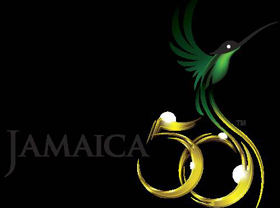News Round-up

On message at the UN
Keeping an eye on Venezuela
Norfolk for the Turks and Caicos
Jamaica at Fifty continues
On message at the UN
 In a near co-ordinated series of messages, Caribbean nations used this week’s UN General Assembly to push forward their views on the US embargo against Cuba, as well as the need for a strong global arms treaty and for environmental goal commitments.
In a near co-ordinated series of messages, Caribbean nations used this week’s UN General Assembly to push forward their views on the US embargo against Cuba, as well as the need for a strong global arms treaty and for environmental goal commitments.Belize called for a “redoubling” of efforts to reach a conclusive arms trade treaty.
“Our region, Central America and the Caribbean, has been labelled among the most violent regions of the world, with homicide rates that have reached crisis levels occasioned largely by the use of small arms and light weapons,” Belize’s Foreign Affairs Minister and Attorney General, Wilfred Elrington, told the assembly.
“But almost all small arms and light weapons found in our region start out as legally manufactured and legally traded arms.
“And every member of this UN is involved in some measure in this trade, which we believe is of dubious value to mankind as a whole.”
Trinidad and Tobago’s Foreign Minister, Winston Dookeran, summed up the cross-Caribbean broadside on the continued US trade embargo against Cuba, calling it an “anachronism”.
He, along with many other Caribbean speakers at the daily sessions of the General Assembly, called for the integration of Cuba into the international system.
Grenada’s Permanent Representative to the UN, Dessima Williams, said it was time for the “revitalisation” of the Security Council to include small island developing states.
“Only a revitalised UN can play its historic role to guide the world, including its financial institutions, through the geopolitical volatility which is destabilising the global economic and financial order,” she told the Assembly.
The general plight of middle-income countries – too rich for large-scale aid and attention, but too small to thrive in the bigger economic arena – was another theme which was woven into presentations by most of the Caribbean speakers.
Barbados’ Foreign Affairs and Foreign Trade Minister, Maxine McClean, said that since her country was short of natural resources, it had relied on its people to keep it within the top 50 of the UNDP’s Human Development Index.
But she pointed out that its status had cost it grant and concessionary funding.
“We have been classified as a middle-income developing country,” she told the Assembly.
“In reality, we are a Sids [small island developing states], characterised by high debt, high vulnerability to external shocks and a susceptibility to the impacts of climate change and natural disasters.”
Why Hugo Chavez is key to Caribbean economies
 It might seem like just another election in a neighbouring country, but Caribbean economists kept a close eye on Venezuela’s presidential elections.
It might seem like just another election in a neighbouring country, but Caribbean economists kept a close eye on Venezuela’s presidential elections.The opposition had promised to shut down the seven-year-old alliance based on cheap crude oil.
PetroCaribe funds, for some Caribbean nations, accounts for more than half of crude oil imports and props up public service bills and balance of payments cover.
Norfolk is the place for me
 Civil servants from the Turks and Caicos are spending time in Britain’s eastern county of Norfolk.
Civil servants from the Turks and Caicos are spending time in Britain’s eastern county of Norfolk.The UK Foreign Office has been working with the islands since the 2009 investigation into high-level corruption.
Ahead of the 9 November elections, anti-corruption legislation has been passed and now training of civil servants is under way.
Norfolk County Council had been chosen by the Foreign Office to mentor Turks and Caicos political staff on governance, financial and economic development.
Jamaica – still 50
 Celebrations marking Jamaica’s 50th independence have continued at home and in the Diaspora.
Celebrations marking Jamaica’s 50th independence have continued at home and in the Diaspora.In the UK, an evening of songs and readings were scheduled at the British Library.
In New York, a series of films have been screened under the title “Salute to our heroes”, showcasing Jamaicans including Marcus Garvey, Paul Bogle, Alexander Bustamante and Norman Manley.
In Washington, a series of lectures has got under way examining Jamaican identity after 50 years of independence.
Jamaica’s Deputy High Commissioner to London, Joan Thomas-Edwards, told Caribbean Intelligence© in June, as the plans were being finalised, that the 50th anniversary was seen as a chance to “plant seeds” about Jamaican identity throughout 2012.
